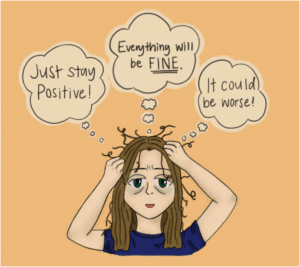
For the past few months, my TikTok For You page has been riddled with teachers using #TeacherQuitTok on their videos. This hashtag has become a place for teachers to shed light on current problems in education and advocate for change, and it is clear that change is needed. While some teachers have quit their teaching jobs to work in a different district or position, many have left the profession altogether. A survey done by McKinsey and Company at the end of the 2021-22 school year found that nearly one-third of educators planned to leave their position before the next school year began. Furthermore, since 2000 there has been a 19% decrease in the number of bachelor’s degrees in education awarded each year. Without significant changes in teacher support and safety, the loss of educators will only continue to have detrimental effects.
One host of the podcast Teacher Quit Talk, who keeps her name anonymous, quit her charter school teaching job to teach third grade in a public school. She turned to TikTok to share her experiences and said she hoped to get more support from the district and union, but problems persisted at her new job. In the first episode of the podcast, she said, “the fact that so many teachers are leaving is highlighting really valid and critical issues in education,” issues like educators not receiving proper administrative or financial support and workplace safety.
Teachers are the backbone of society. They set students up for success, change lives and provide students with the gift of knowledge. A lack of teachers in primary and secondary schools will result in larger class sizes and dilute the crucial K-12 education that kids need to receive. It will also make them ill-prepared for college. So why do we continue to undervalue such an essential profession?
A major contributor to the teaching crisis is an absence of support from districts and the state. Education Week found that teachers say districts could support them by reducing class sizes and the number of meetings and by providing additional planning time. It is disappointing that as the responsibilities of teachers continue to increase, support and resources have not followed suit.
In an interview for Chalkbeat, Chicago teacher Evan Gillum, who recently quit his teaching position, said, “The kids are wonderful and I could have possibly stayed for another year with greater support.” He also mentioned that any support from the district comes in the form of staff that is overworked and burnt out. For teachers, it feels like no one is listening. Teachers need a network of administrators who care, more financial resources in the classroom, and appreciation for the hard work they do to keep our education system running.
Support means not only more resources, but a variety of other things as well. Teachers need to maintain autonomy in the classroom. The recent surge in book bans and restrictions on curricula make teaching increasingly difficult. Michael Woods, a high school special education teacher, teaches in Florida, which in recent years has banned numerous books and even the teaching of AP African American studies. In an interview with NBC News, Woods explained that vaguely worded laws have caused him to remove all books from his classroom after being told repeatedly that “if something happens, you could lose your license.” The vagueness of the “Don’t Say Gay” bill in Florida also opens up teachers to lawsuits from parents over anything they deem to be age-inappropriate.
This is not an issue specific to Florida. Currently, 32 states have banned books, and Michigan is one of them. When educators become hyper-controlled by their districts and are subject to immense harassment by parents, it is no surprise they do not want to continue teaching. Despite popular discourse that books are banned for sexual content, PEN America found that only one-fourth of the books banned had any form of sexual content. What many of these books did have were characters of Color, LGBTQ+ themes, and direct discussion of racism in America. Of course, a standard curriculum for teachers to follow is necessary, but these recent rules are censorship. When teachers have their autonomy in the classroom stripped from them, it makes the job incredibly draining and inherently difficult.
Districts need financial resources from the state level to provide adequate support for teachers. Levels of funding vary greatly between districts, and less funding per student in low-income areas only exacerbates issues of income inequality. Increased funding across the board will provide more teaching materials, support staff, smaller class sizes, respectable salaries, and a better place for students to learn and teachers to teach. At the state level, the historically catastrophic idea of censorship must end. Censorship “deprive(s) students and teachers of the skills, the knowledge and the confidence to have critical conversations in the classroom.” It is ironic that a society that relies so heavily on public education underfunds its schools and does not support its teachers.
In addition to a lack of support for educators, they now fear for their safety at work. In 2023 alone, 74 people have been injured or killed by guns in American schools. Substitute teacher Cindy Peak was killed in the Covenant School shooting in Nashville last month. In the 2022 Uvalde shooting, fourth-grade teachers Irma Garcia and Eva Mireles lost their lives. Earlier this year, a 6-year-old student shot their teacher, Abigail Zwerner. This is not what teachers signed up for. A survey conducted by the American Psychological Association found that nearly half of teachers wanted to quit their jobs over safety concerns. Students and teachers alike are scared. Schools should be safe places that foster learning and build skills for students. There is no reason teachers or students should be under this type of stress. When books in a classroom become more regulated than guns in the U.S., we cannot expect educators to stay in the profession.
The federal government needs to take meaningful steps towards nationwide gun control to protect students and all school faculty. In 1996, there was a school shooting at a primary school in Scotland. However, within a year, Parliament banned private ownership of most handguns and semi-automatic weapons and required registration for other gun owners. Since then, the UK has not experienced another school shooting. Yet every year in the U.S., our crisis of school shootings continues with nothing but thoughts and prayers. Our rights as Americans are important, but is the right to bear semi-automatic weapons more important than the safety of our children and educators? Our leaders have the opportunity to show whether they care more about people than guns, and to date, they have shown that they do not.
It doesn’t look like this trend of quitting, or #TeacherQuitTok, is going anywhere without swift government action. It is disheartening that educators do not receive the support and respect they deserve. It is upsetting that teachers and students continue to fear for their lives while at school. It’s time the government take action to combat the impending doom of a disastrous teaching crisis. It is very simple: Educators deserve better.
Mackenzie Kilano is a student at the University of Michigan. This essay was originally published in The Michigan Daily and is posted here with permission from Mackenzie Kilano.
Like most of the pictures on TeensParentsTeachers, the picture posted with this article is courtesy of a free download from Pixabay.com.



